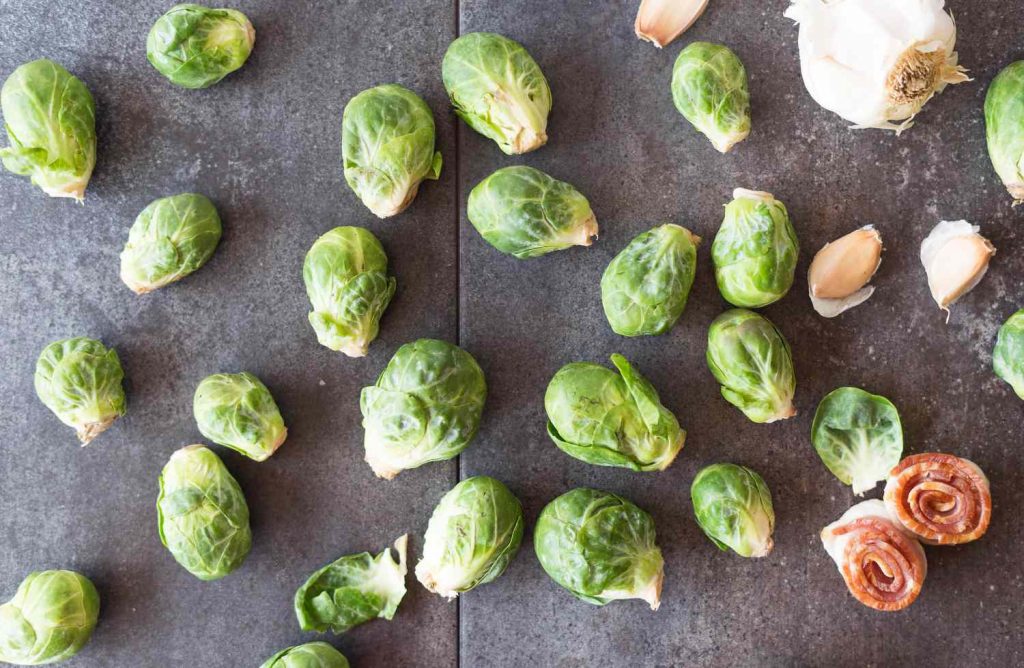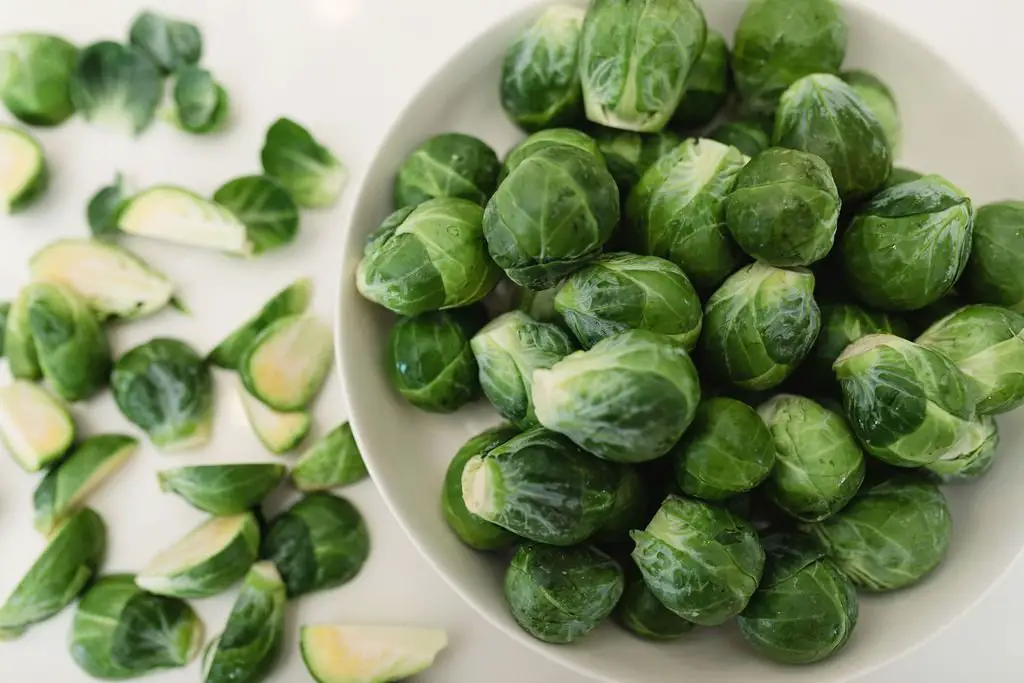How to Freeze Brussels Sprouts Without Blanching
Freezing Brussels sprouts is an effective and simple way to extend their shelf life and preserve their taste without losing any nutrition in the process. By freezing, your brussel sprouts will stay crisp and flavorful without losing their nutrients or texture.
Brussels sprouts contain phosphorus and two types of phytochemicals to support heart health and reduce risks for disease. They also contain quercetin which may help alleviate allergies such as hay fever or asthma attacks.
Choose the Right Sprouts
When freezing brussel sprouts, it is essential that the right sprouts are chosen. Search for green, compact sprouts that are free from dirt and insects and look for those without yellow hues as this indicates their lack of freshness; also avoid buying those with black spots as these could indicate they have been compromised or infected with fungus.
Once you’ve selected the highest-grade brussel sprouts, wash and pat dry them thoroughly to help them remain crisp and tasty when frozen. Alternately, cold water containing one tablespoon of salt could also be added; though this step is optional.
Separating Brussels sprouts from their stalks should not be difficult and can be done using either your fingers or a knife. Simply be careful not to cut off their heads as this would spoil them and once separated they can be blanched before freezing for future use.
Blanching is a crucial component of freezing brussel sprouts as it preserves all their vitamins and nutrients. Blanching can take as little as 10 minutes per batch; to do this you will require:
Ice Water will quickly cool the brussel sprouts down for blanching, while colanders will be used to drain blanched or rinsed and drained fresh sprouts, while paper towels will be used to pat dry them before freezing. Baking sheets are necessary for initial freezing purposes in order to prevent clumping, while freezer bags or airtight containers will store long-term storage in your freezer; you’ll also want permanent markers handy so as to label each of them with its contents and date of freezing.
Once blanched, brussel sprouts can either be frozen immediately or packaged for long-term freezing. Quick freezing may lead to more mushy results when defrosted; while packaging freezing ensures firmer texture once defrosted.
Separate the Sprouts from the Stalks
Brussels sprouts can be frozen whole or cut up and will maintain their shape fairly well when frozen, though for optimal results blanching should be performed beforehand. Blanching deactivates enzymes found in vegetables that cause them to become mealy and waterlogged as well as preserve color and flavour in this quick process.
Before blanching, the minimum preparation required will include giving your sprouts a quick wash and removing any discolored outer leaves, trimming off extra bits at the base, and any extra bits from around their stems if necessary. This process should be accomplished quickly and easily using either kitchen scissors or a sharp knife depending on how many you need to blanch.
Once your brussel sprouts are ready to be blanched, preparing a large pot of boiling water and an adjacent bowl with ice water is key to successfully blanching them. In addition, a slotted spoon and baking sheet or tray for freezing them is required for maximum results.
Sort sprouts by size to ensure blanching of the largest ones first and adding medium and small varieties over time. Boil large sprouts for five minutes; medium ones four; and small sprouts three before immediately plunging them into an ice water bath to stop cooking.
Continued cooking will result in soggy sprouts. Re-freezing them could alter their texture and color; once blanched and cooled, make sure they are dried thoroughly with a towel before spreading them evenly on your baking sheet or tray.
Once your trays are full, place them in the freezer until solidified. At that point, transfer them to a freezer bag or plastic container and keep in your fridge until use – when stored properly they should keep fresh for at least a week in the fridge!

Blanch the Sprouts
Blanching involves submerging raw vegetables in boiling water for an instantaneous immersion process that helps retain their nutritional benefits, prevents overcooked texture and provides a fresher taste. Blanching is an efficient and simple solution that should be considered essential if you wish to freeze brussel sprouts.
Brussel sprouts are an amazing vegetable that can be frozen without losing their nutritional value or texture, though blanching may help ensure their crispiness and bright colors remain intact after freezing. Blanching also ensures they are safe to consume once frozen.
To blanch brussel sprouts, begin by removing their outer leaves from their stalk. Rinse in cold water to remove any dirt or debris; this step is vitally important as it will prevent mold and bacteria growth after freezing has taken place.
Once sprouts are cleaned and rinsed, sort them by size for blanching purposes. Blanching time varies based on sprout size: large sprouts should be blanched for five minutes, medium sprouts four and small three minutes respectively. Once blanched to your specifications, place in an ice water bath to stop cooking processes and preserve their bright green hue.
Drain and cool the sprouts before placing them into a resealable freezer bag or container for freezing. Make sure all moisture has evaporated prior to freezing as moisture can lead to freezer burn, making freezer bags ideal for storage as they keep sprouts separated while being easy to access.
Brussel sprouts can be frozen for up to one year without losing their crisp texture when defrosted, making them perfect for use in soups, stews and casseroles. You could also roast them in the oven sprinkling them with minced herbs for an exquisite side dish; just remember to cook until tender yet soft for optimal results.
Freeze the Sprouts
If you don’t wish to blanch the sprouts before freezing them, simply freeze them as is – they should still taste similar and are healthier than fresh versions. For an added bit of flavor you could opt for roasting before freezing as well.
Before beginning the freezing process, be sure that your sprouts are in excellent condition. They should be firm and bright green in color with no sign of yellowing or softness – otherwise they won’t withstand freezing well!
Sort the Brussels sprouts by size to ensure that there will be enough of each size in each bag or container when freezing them, and use an airtight bag or container so as to prevent moisture entering and leading to freezer burn.
Now, pour the sprouts into a bowl of ice water to stop the cooking process and prevent them from becoming soggy when frozen. After they have completely cooled off, drain and pat them dry with paper or kitchen towels so as to remove excess moisture and avoid clumping.
Once your Brussels sprouts have been divided into serving-size portions, place them in resealable freezer bags or containers and press out any air before sealing them tightly. Also label these with their contents and date frozen so you can easily locate and track their frozen state over time. This way you’ll know which Brussels sprouts have been stored the longest.
If you don’t own a deep freezer, a regular refrigerator can also work just as effectively for storing sprouts. Be mindful that they do not stay frozen too long as this may lead to them defrosting and spoiling quickly. When ready to enjoy them again, they can be quickly heated back up in either a skillet, oven or air fryer before refreezering at low heat settings for best results.


